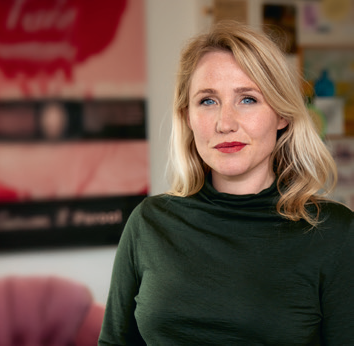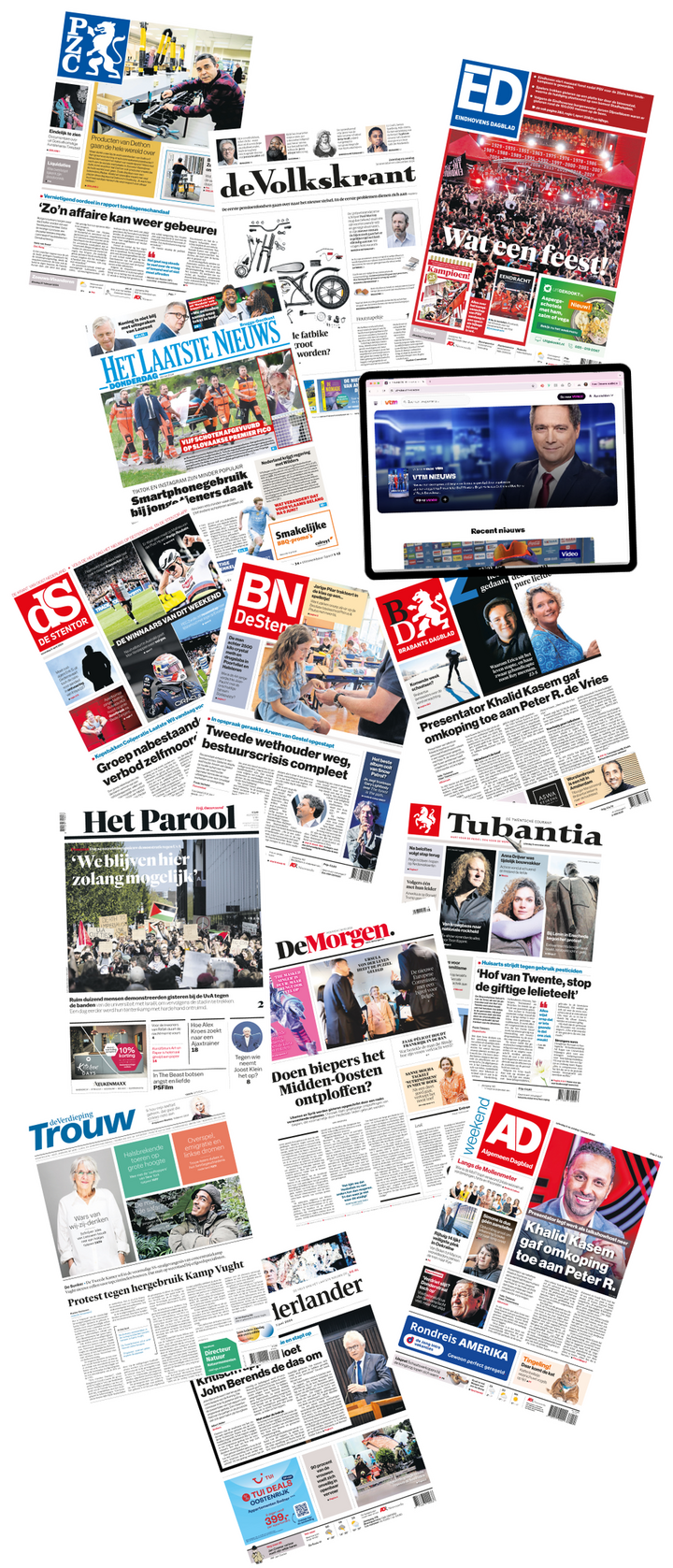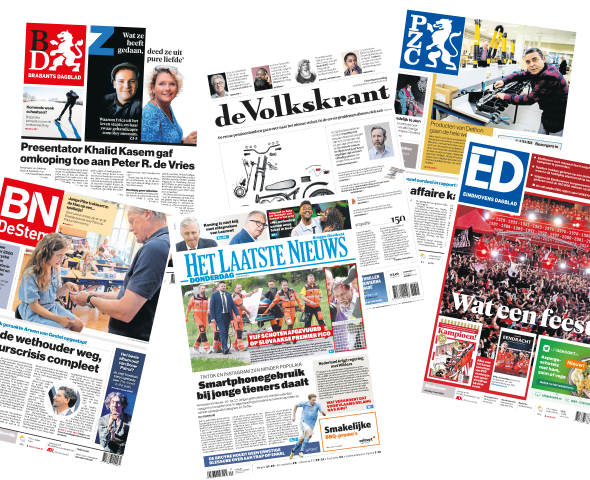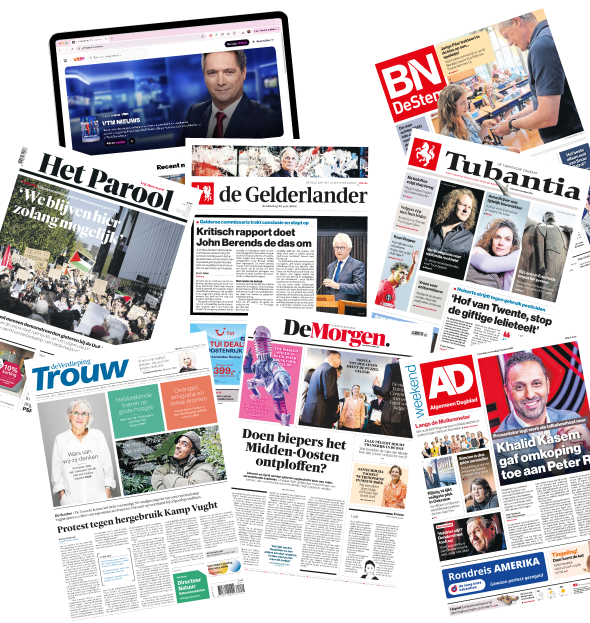Annual Editorial Report
All Dutch news brands that are part of DPG Media have an editorial statute. While each statute is unique, they share key elements:
Key elements
The statutes set out the brand’s identity.
Editorial teams operate independently.
Amendments are permitted only with the consent of the parties involved.
A disputes procedure.
The editorial team have a say – varying from advisory powers to right of recommendation – in the appointment of a new editor-in-chief. At de Volkskrant, Trouw and Het Parool, the foundation also holds a casting vote.
In practice, the editorial team, board of directors and (at de Volkskrant, Trouw and Het Parool) the foundation form a joint selection committee to appoint a new editor-in-chief – this structure is rare in other countries. The confidential selection committees at NU.nl, AD (Algemeen Dagblad) and the seven regional newspapers have four members – two editors and two board members – who unanimously nominate a new editor-in-chief.
Articles of association
The editorial statutes are also enshrined in DPG Media B.V.’s articles of association: Article 13.5 explicitly acknowledges the editorial statutes and obliges the board to comply with them. The articles of association can be amended only with the explicit consent of Stichting Democratie en Media (Democracy and Media Foundation), one of the four foundations that hold shares in DPG Media:
Stichting Democratie en Media, whose mission is to use diverse and independent media to support democratic rule of law.
Stichting de Volkskrant (De Volkskrant foundation), which safeguards the identity of de Volkskrant.
Stichting ter Bevordering van de Christelijke Pers in Nederland (foundation promoting the Christian press in the Netherlands), which safeguards the identity of Trouw.
Stichting Het Nieuwe Parool (Het Nieuwe Parool Foundation), which safeguards the
identity of Het Parool.
The foundations consult with the board of directors on a range of matters, including investments, operations and the news media’s vision for the future. Stichting Democratie en Media has the right to nominate one member of the Supervisory Board of DPG Media B.V., currently Professor Annetje Ottow.
The publisher
The publisher decides on sales of subscriptions and advertising, IT investments and business accommodation. Editorial teams and the publisher consult on these topics and jointly shape the digital transformation. In this sense, our daily operations are on the dividing line between journalism and business management – the publisher does not and cannot influence editorial content.
Editorial independence as described above is built on solid legal foundations and enshrined in our business model, thereby excluding any unauthorised interference now and in the future.
Stichting Democratie en Media: “Guardian of Press Freedom and Democracy”
Stichting Democratie en Media (Democracy and Media Foundation) emerged from the foundation established after the war, when Het Parool – an illegal resistance paper – continued as a national daily. The past has instilled a profound awareness in us that democratic rule of law and press freedom can never be taken for granted.
Read more

Nienke Venema Stichting Democratie en Media
Stichting Democratie en Media: “Guardian of Press Freedom and Democracy”
Stichting Democratie en Media (Democracy and Media Foundation) emerged from the foundation established after the war, when Het Parool – an illegal resistance paper – continued as a national daily. The past has instilled a profound awareness in us that democratic rule of law and press freedom can never be taken for granted. That mission drives us as a non-profit shareholder (14.27% of shares) of DPG Media, with whom we maintain close ties and act as a ‘critical friend’. As a non-profit foundation, we are committed to safeguarding the independence and continuity of journalism in the group. This means that we provide critical yet constructive input on subjects such as the positioning and identity of journalistic brands, and also regularly ask questions about strategy, accountability and impact on society. Our engagement focuses on strengthening the role of diverse, independent media as the foundation of democratic rule of law. As history reminds us how fragile these elements of our society can be, we are committed to building a future in which they are protected and cherished.
– Nienke Venema (Director and board member of Stichting Democratie en Media)
Lees meer
EDITORIAL INDEPENDENCE IN BELGIUM
DPG Media’s Belgian brands also have a long tradition of editorial independence. This is sometimes, but not always, enshrined in the same manner as in the Netherlands. De Morgen and VTM NIEUWS both have an editorial statute and an editorial board. Het Laatste Nieuws (HLN) has no statute, but does have a foundation (Raad Het Laatste Nieuws) that safeguards the brand’s liberal leaning and consents to the appointment of editors-in-chief. The journalistic protocol and code of ethics for the editorial teams at VTM NIEUWS, HLN and the magazines are set out in the News City Code. All Belgian brands are also members of the Belgian Raad voor de Journalistiek (RVDJ, Council for Journalism) and comply with the Council’s Code.


Article sharing: how does it work?
There are concerns that article sharing between brands could harm the quality of journalism. At DPG Media, this is generally done with a view to improve the quality of journalism for readers of the brand receiving the article, without consequences for the writers of the articles. Article sharing has its benefits and drawbacks. It must be based on careful deliberation and with the consent of the editorial teams involved. Columns are not shared, as they are part of a brand’s identity.
Our exchanges
A central editorial team in Rotterdam provides national and international coverage in the regional daily papers and AD. Regional newspapers have been working together in this way for almost a century, as it allows them to focus on the local stories that are at the heart of their journalistic uniqueness.
Het Parool also focuses on covering local stories in Amsterdam while publishing articles on domestic affairs by the central ADR editorial team and on foreign affairs by Trouw.
DPG Media’s Belgian brands publish a number of Dutch articles alongside their own coverage, with ADR occasionally borrowing articles from the Belgian HLN and vice versa.
NU.NL: GENERATING A BROADER AUDIENCE
NU.nl publishes a limited number of DPG Media newspaper articles in its ‘Uit andere media’ (From other media) section, showing the relevant brand logo. This serves a marketing purpose, as it introduces a broad audience to paid media. Options to subscribe are shown below the articles, which NU.nl visitors can read after logging in. This is beneficial for all brands, as active visitors form the basis of DPG Media’s advertising network.

Next
Journalism in figures: 2024